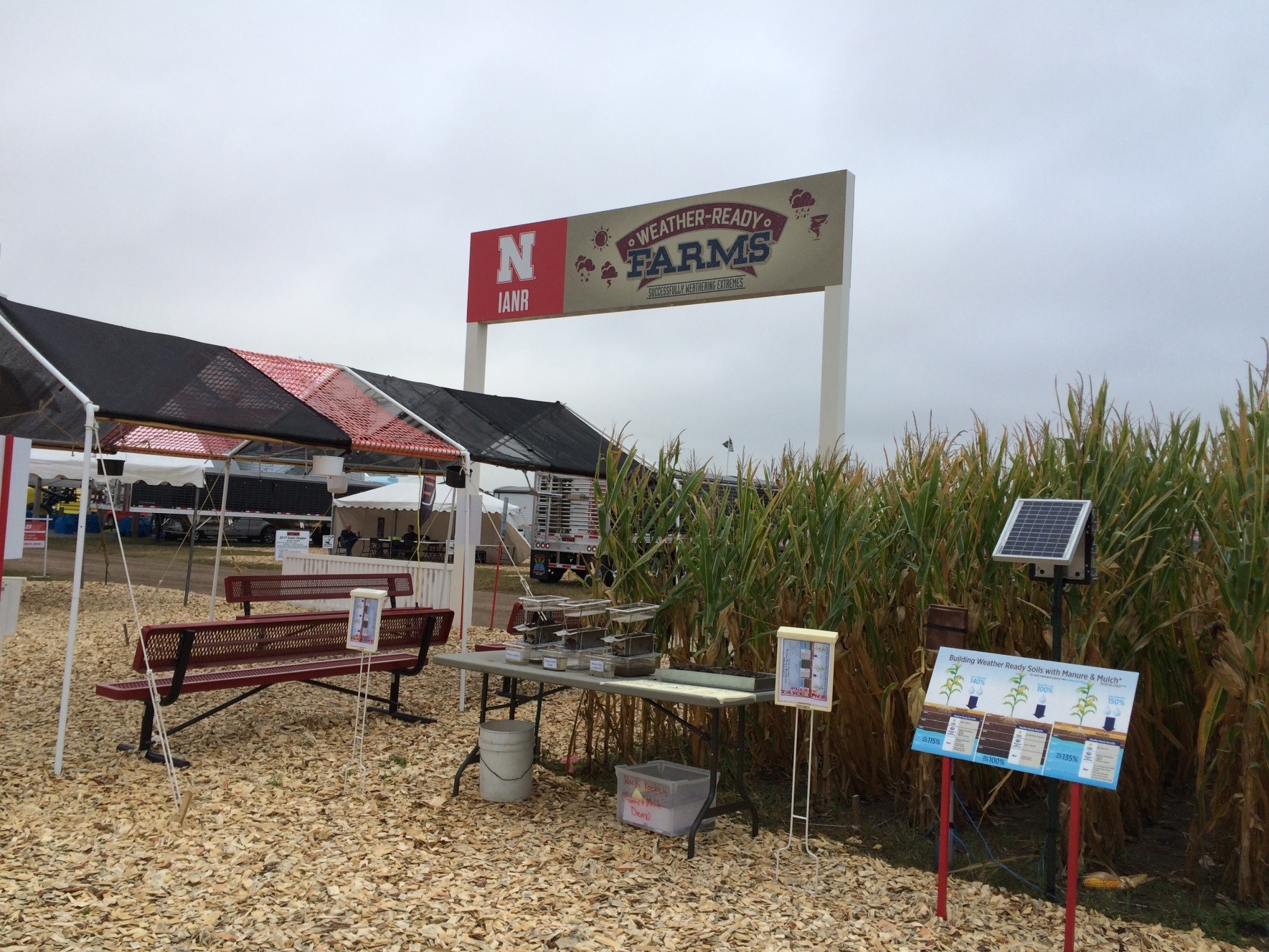
By: Linda Schott, Extension Graduate Research Assistant, Biological Systems Engineering
Manure is often an undervalued and underutilized resource in the state of Nebraska. It has many soil health benefits. When manure is managed properly and applied at appropriate rates, soil benefits include better drought tolerance and greater resilience to heavy rainfall events when compared to non-manured soil. Manure has been shown to increase soil organic matter, increasing the amount of water that soil can hold for later plant use. Manured soils also have greater soil aggregate stability, allowing more water to infiltrate during heavy rainfall events and decreasing erosion caused by runoff. Additionally, manured soils have enhanced microbial activity, which increases nutrient cycling in the soil. Overall, manure has been shown to increase soil infiltration rates by 40% and water holding capacity by 15% when compared to non-manured soil. Crop yields are also generally higher for manured fields.
Mulch, which is typically comprised of crop residue or wood chips, also increases resilience of soils to drought and heavy rainfall for many of the same reasons as manure. In addition, mulch decreases evaporation of water from the soil surface and suppresses weed pressure. Overall, mulch has been shown to increase water infiltration by 50% and water-holding capacity by 35% when compared to non-mulched soil.
“Weather Ready Farms: Successfully Managing Extremes” was the 2016 theme of the exhibits for the University of Nebraska-Lincoln Institute of Agriculture and Natural Resources at Husker Harvest Days, which was held September 13-15 near Grand Island. Typically, thousands of agricultural producers and supporters attend this grand annual event to view in-the-field equipment demonstrations. However, the HHD educational booth during this event also provides IANR faculty and educators an excellent opportunity to speak with the public about agriculture related topics. IANR booth exhibits visitors generally come from diverse backgrounds and occupation such as teachers, students, producers, policy makers, and business owners. The 2016 Nebraska Extension/IANR Husker Harvest Days booth highlighted 12 indoor and outdoor exhibits allowing engagement with visitors on a wide variety of topics related to the “Weather-Ready” theme.
The “Building Weather Ready Soils with Manure and Mulch” outdoor exhibit featured actively growing corn to demonstrate the effects of manure and mulch on soil, water, and crops. Three small corn plots were established in May 2016 to demonstrate the impacts of three different soil treatments. Beef feedlot manure was surfaced applied on two of the plots, providing approximately 50 lbs of plant available nitrogen per acre. The two manured plots received an additional 150 lbs of nitrogen per acre via urea, and the third plot received all 200 lbs of nitrogen per acre via urea. On one of the manured plots, wood chips were surfaced applied over the top of the manure at a rate of approximately 13 tons per acre. This display further demonstrated how manure and mulch can increase resilience to drought and heavy rainfall events through a desktop rainfall simulator. Overall, the demonstration confirmed that manure and mulch increased infiltration, water holding capacity, and soil aggregation.
On-going research by the Schmidt Lab for Livestock and Environmental Research continues to assess the impacts on soil quality and crop productivity of multiple combinations of manure and mulch application to cropland and grazing land. This research is partially funded by the Nebraska Forest Service (NFS) and is a collaborative effort among UNL, the NFS, the Middle Niobrara Natural Resource District (MNNRD), and farmer cooperators in the MNNRD.
For more information about the soil health benefits of manure, please visit http://articles.extension.org/pages/14879/environmental-benefits-of-manure-application
For more information about best management practices for manure, please visit http://manure.unl.edu
To listen to BeefWatch podcasts go to: https://itunes.apple.com/us/podcast/unl-beefwatch/id964198047 or paste http://feeds.feedburner.com/unlbeefwatch into your podcast app.